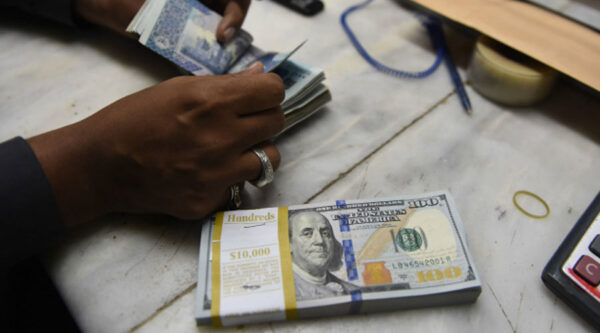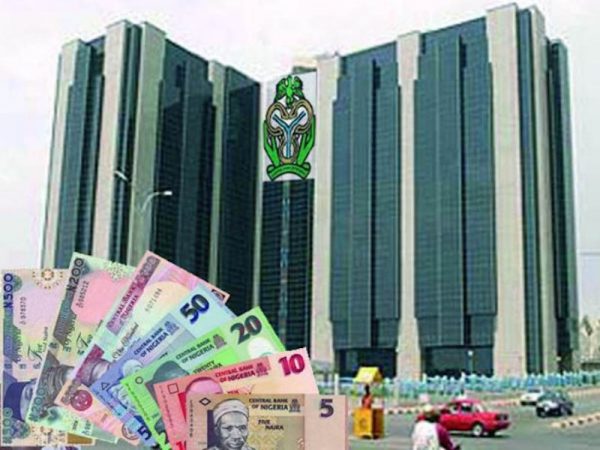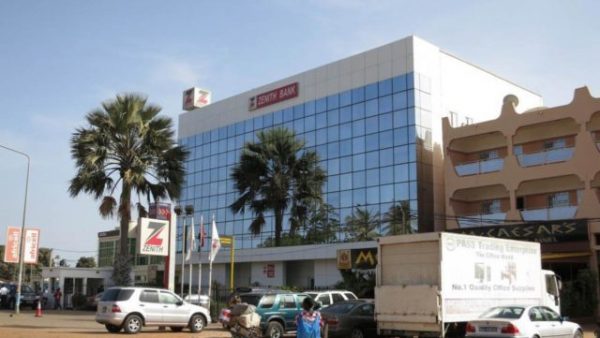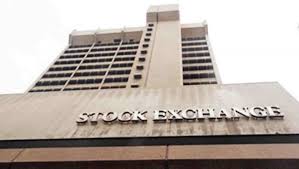Nigeria services foreign debts with $1.62bn in five years

External debts have cost the nation a total of $1.62bn in interest payment in the last five years, an investigation by our correspondent has shown.
Statistics obtained from the Debt Management Office showed on Friday that the country spent a total of $331,059, 850 on servicing its external debts in 2015.
The nation’s external debt burden stood at $11.26bn as of June 31, 2016.
In 2014, a total of $346,723, 290 was spent on the same item; while $297,329,300 was spent in 2013.
In 2012, the servicing of external debts cost the nation a total of $293,003,540, while it cost a total of $351,619, 070 to service the debts in 2011. This means that in the past five years, the nation spent a total of $1.62bn to service its external loan liabilities.
The trend has continued this year with $117,660,770 spent on serving the country’s external debt in the first quarter of the year and $47,998,430 in the second quarter, thereby making a total of $165,659,200 for the first six months of 2016.
In terms of sources, multilateral agencies contributed the highest percentage to the country’s indebtedness. As of June 30, 2016, the multilateral agencies accounted for 70.96 per cent of the country’s external debt exposure.
This is made up of the International Development Association, which accounted for $6.84bn; International Bank for Reconstruction and Development, $7.25m; African Development Bank, $400.73m; and the African Development, $538.18m.
Other multilateral creditors include Banque Arabe de Economique en Afrique, which contributed $5.52m; the EDF, $71.47m; Islamic Development Bank, $19.87m; and International Fund for Agricultural Development, $103.01m.
Bilateral sources accounted for $1.58bn or 11.73 of the country’s external debt exposure. The multilateral sources include China, through the EXIM Bank of China, $ 1.49bn; France, $182.95m; Japan, $80.44m; and Germany, $11.66m.
Commercial Eurobonds accounted for $1.5bn or 14.54 per cent of the country’s external debt as of June 30.
The 36 states of the federation and the Federal Capital Territory owe $3.65bn of the foreign debts, as against the $7.61bn owed by the Federal Government.
Lagos State, which is the largest economy in the country, owes a total of $1.43bn. Thus, the state holds 39.17 per cent of the country’s total subnational foreign debts.
Kaduna State, with a foreign debt of $225.28m, comes in the second position. It holds 6.16 per cent of the total subnational foreign debts.
Edo State, with a total of $179.52m as of June 30, holds 4.91 per cent of the country’s subnational foreign debts.
Other states ranking among the highest in the subnational foreign debts include Cross River, with $141.47m or 3.87 per cent; and Ogun State, $103.55m or 2.83 per cent.
Bauchi owes $97.23m or 2.66 per cent of the total; Osun, $78.93m or 2.16 per cent; Adamawa, $77.14m or 2.11 per cent; Enugu, $74.46m or 2.04 per cent; Katsina, $68.99m or 1.89 per cent; and Oyo, $67.56m or 1.85 per cent.
Some of the least indebted states of the federation are Borno, with $21.89m; Taraba, $23.01m; Plateau, $29.24m; Yobe, $29.28m; Jigawa, $32.62m; Kogi, $33.56m; Benue, $34.26; Federal Capital Territory, $34.8m; Zamfara, $35.07m; and Delta, $42.21m.
The World Bank Lead Economist for Nigeria, Mr. Khwima Nthara, is one of those who think that the country’s exposure to debt is very low. He, however, believes that the nation should be mindful of its total debt servicing cost.
Nthara said Nigeria’s total debt profile was sustainable but added that the cost of servicing it, especially the domestic debt component, was too high and out of sync with the country’s revenue profile.
He said, “Yes, debt has been on the increase but Nigeria’s debt remains low. The debt stock has just increased from 12 per cent to 14 per cent of the Gross Domestic Product. The most important problem that Nigeria is facing is debt service. Nigeria has a large debt to revenue ratio and largely most of the debt is domestic, which is crowding out the private sector.
“So, while Nigeria does not have a debt sustainability problem at the moment; indeed, there is an issue on how the debt is being financed. And that is why the Debt Management Office is putting in place new strategies to increase external financing.”
The PUNCH had reported that the cost of servicing the Federal Government’s domestic debt hit the N1tn mark for the first time in 2015.
Development economist, Odilim Enwegbara, believes that the country should increase its external borrowing and reduce the size of its domestic borrowing.
Among peer economies, Nigeria’s debt-to-GDP ratio at about 14.6 per cent is the lowest, with the external portion of the overall debt still the lowest among them, he said.
Enwegbara said, “In the absence of high savings culture and the presence of low foreign exchange receipts from oil, which is 90 per cent of sources of forex, we ought to have increased the current ratio of our foreign debt to our overall debt stock from about 15 per cent to as high as 60 per cent. That should also require us to increase our external debt-to-GDP ratio to as high as 50 per cent.
“Given our huge infrastructure deficit, which is as high as $300bn, we have no reason not to borrow more externally. Given our high external creditworthiness, we should have borrowed more externally than domestically.
“External debts are far cheaper with longer term window and are easily refinanced should we have difficulty meeting our debt repayment obligations. Foreign debts are good as they hardly crowd out real sector firms from the domestic debt markets.”
He added, “However, foreign debts become toxic to an economy should the foreign loans be for consumption or for investment with very low returns on investment such as white elephants projects that hardly justify the cost of the loans to the extent that they hardly generate enough revenue to repay the loans.
“If we borrow wisely externally for priority infrastructure projects and pro-growth projects, then, we should be drastically reducing our current high cost of doing business that has continued to price out our real sector firms both in the domestic and foreign consumer markets.
“By increasing our real sector firms’ competitiveness, we will not only reduce the country’s import-dependency, but can also begin to export more finished goods and services to increase our sources of forex. With these being our new policy choices, definitely, we should expect less difficulty in our foreign debt repayment.”
Enwegbara believes that if most of Nigeria’s current debt of over N16tn had been borrowed from external sources, the country would have saved about N2tn in debt servicing in the past five years and more funds would have been available to the private sector.
At the moment, the Federal Government is making efforts to increase its external borrowings even though some of the lenders are dishing out conditions.
One of such efforts that have reached advanced stages is the $1bn, which the Federal Government said it would raise through the issuance of bonds in the international bond market before the year runs out.








